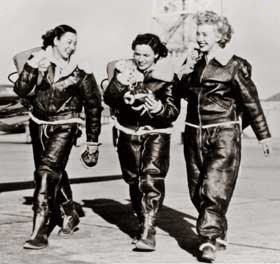
By Jonathan Harrison
Few people in 1900 would have predicted that many of the world’s most advanced military forces would commit horrific crimes against civilians in the forthcoming century. However, the genesis of those crimes was already unfolding in the colonial expansion of the European powers. Spain had used “reconcentration camps” in Cuba in 1897 under General Valeriano Weyler caused a political firestorm in Britain’s Parliament over the appalling conditions in detention camps that were built in the Boer War. The U.S. had meanwhile committed atrocities in its ‘internal colonialism’ against Native Americans. There was not a straight line from these crimes to the genocidal acts of Hitler, Mao and Stalin but they demonstrate that these blood-soaked dictators did not paint their pictures of Hell on a blank canvas.

Imperial Germany committed the worst genocide of the first decade of the 20th Century. The extermination of the Herero and Namaqua peoples of the Kaiser’s South West African colony resulted in the deaths of as many as 100,000 people between 1904 and 1907, largely through starvation and concentration camps. As documented by Jan-Bart Gewald of the Netherlands’ Leiden University, Germany’s Lt.-Gen. Lothar von Trotha declared that “I believe that the nation as such should be annihilated” by denying access to the waterholes and finding “the small groups of the nation who have moved back westwards and destroy[ing] them gradually.” Von Trotha then wrote:
…I find it most appropriate that the nation perishes instead of infecting our soldiers and infecting their supplies of food and water. Apart from that, mildness on my side would be interpreted as weakness on the other side. They have to perish in the Sandveld or try to cross the Bechuanaland border.
Gewald also cites the diary entry of a Major Stuhlmann, dated Aug 11, 1904, in which the officer states that “we had been explicitly told beforehand that this dealt with the extermination of a whole tribe, nothing living was to be spared.” Stuhlmann had also used the term Vernichtungskrieg, literally war of destruction, which was the concept that shaped German motivation during Operation Barbarossa, driven by Hitler’s orders designed to ensure that the German army and police would not be constrained by civilized rules of warfare.

We can infer three reasons for this escalation (or descent) into barbarism.
To start with, these were the first wars to be shaped by modern conceptions of race, in which the enemy was defined as a lesser breed whose right to life was not considered equal to that of the white race. For example, a notorious order by Nazi field-marshal Walther von Reichenau called for “a just atonement” for “Jewish subhumans.” This rationale formed the backdrop to murders of women and children such as the massacre at Bjelaja Zerkow. Such racist ideas did not stay confined to “white” thinking, but spread to how the Japanese behaved in Manchuria and how the Khmer Rouge treated the ethnic Vietnamese.
Secondly, during the modern period, many militaries have lost their political neutrality and have morphed into an instrument of state ideology. In some regimes, political leadership became charismatic rather than legal-rational. For example, Hitler demanded and received total personal loyalty, whilst Stalin ruthlessly purged his officer class.
Thirdly, as Isabel V. Hull argues, modern militaries began to seek ‘total solutions’ rather than limited ones. The aim was no longer to achieve victory for a set of politically constrained objectives but was instead to permanently destroy the basis for all enemy resistance. Such thinking was inexorably genocidal because ultimately the only way to guarantee permanent domination is to exterminate all populations that come under military occupation.
Today we mainly think of ‘jihadists’ as having the urge towards total destruction but history teaches us that they are inheriting a goal that more ‘civilized’ military powers have exercised in the last century.
_____________________________________________________
Jonathan Harrison teaches Sociology at Florida Gulf Coast University and Hodges University










Please are we to believe that warfare has ever been a game for gentlemen, played by humane rules, watched over by umpires? I cannot think of a decade in the huistory of the world that hasn’t seen the elimination of some group in a war/disagreement/police action/youths revolting.
Wars without brutality are akin to government without taxes.
Pathetic.
The idea that genocide became normalised in 1850 seems bizarre in the extreme.
Since it was around then that the opposite occurred, when it became normal not to exterminate or enslave conquered peoples.
Was Hitler really more Brutal than Tamerlane? Or Mehmed II? Or thousands of nameless tribal leaders, who would execute every male, and every female too old or young to make an unwilling wife.